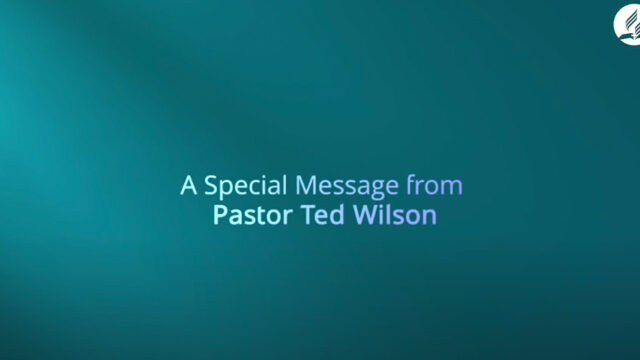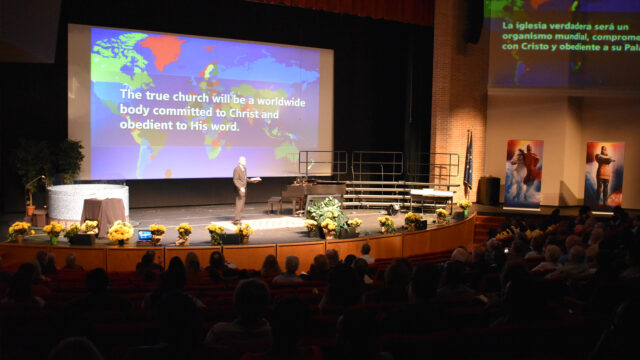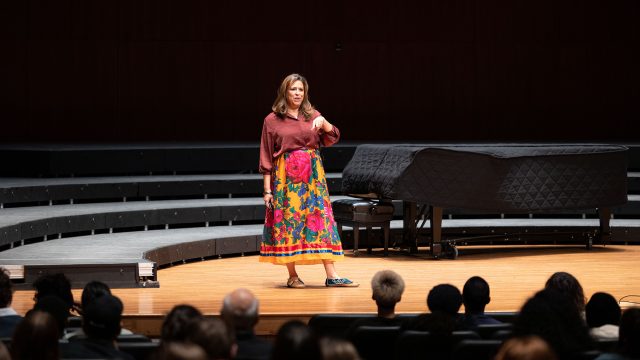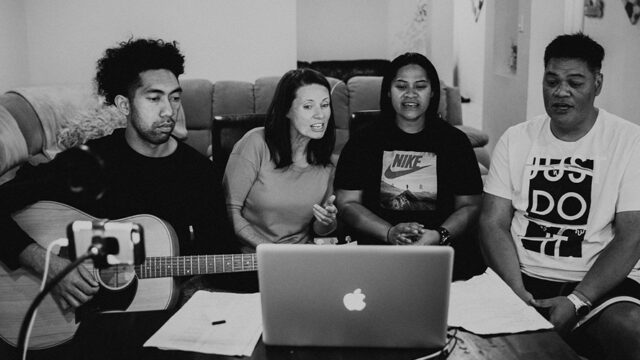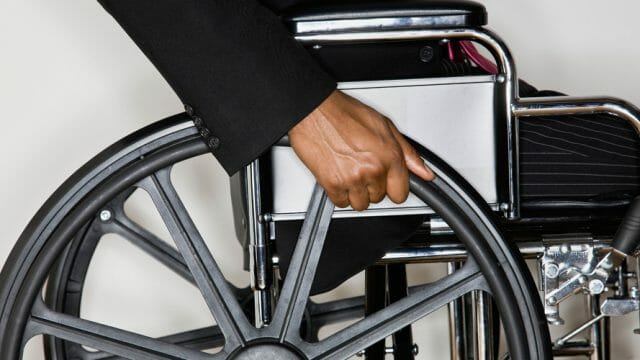An Adventist hospital administrator tells his team’s story.
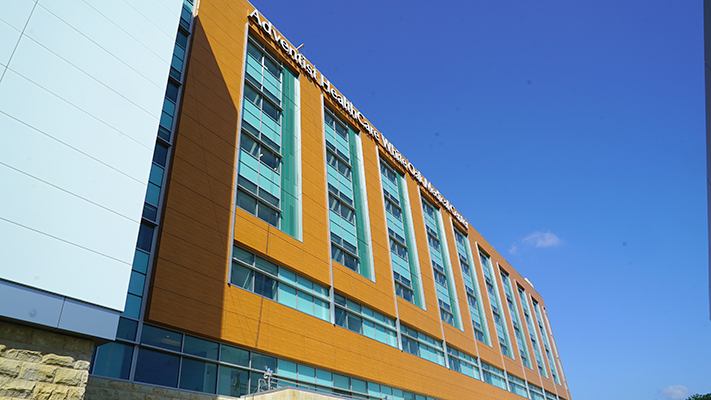
“If we have to admit a patient with COVID-19, here’s the room we’d use,” said Cameron Stone, our overnight nursing supervisor. “The room is negative pressure, and we can don and doff our isolation gowns in the adjoining space. We’ve been thinking this through over the past few days.”
It was Sabbath, March 7, 2020, and I was about to begin my service as president of Adventist HealthCare White Oak Medical Center in Silver Spring, Maryland, the following Monday. I decided to visit the overnight teams to thank them for their commitment to the health care of our community. Cameron was giving me a tour and discussing tentative plans in case patients with COVID-19 arrived at our hospital.
Little did we know, standing in that brightly-lit patient room that night, that the following weeks and months would be a hard-fought battle that would test our team’s resourcefulness, resolve, courage, and strength. Along our journey we would confront fear and death but also celebrate lives that were saved. During the early months of the pandemic, nearly 60 percent of the patients at White Oak Medical Center were treated for COVID-19. It was necessary to make rapid decisions and immediately execute them to keep pace with the changing environment and help as many people as we could.
Early Decisions and Support for Our Team
As the pandemic swept across the state of Maryland, it was evident that White Oak Medical Center would have to close its doors to visitors to protect them and our staff from the virus. While this was the right decision, separation created challenges in communicating with family members and added to the concern of patients and family. Our team leaned in to become “family” to our patients.
As the number of hospitalized COVID-19 patients rose, so did the fear and workload for our team. Putting protective gear on and off takes time. It was quickly evident that to ensure continued quality care to our community, we would have to hire more intensive care (ICU) nurses and medical-surgical nurses.
During normal times, it can take several months to hire and orient new nurses. Much could be written about the valiant work that went into hiring an additional 50 nurses within just a few weeks. Ramping up hiring and bringing in nurses from other hospitals made it possible to further extend our mission—taking care of our patients and our team.
One gut-wrenching reality of our COVID-19 work was the mounting patient deaths—many more than caregivers normally experience. Death brought a heavy burden to our entire team. We had to find new ways to provide the necessary emotional and psychological support through counseling and debriefs.
Preparing to Handle a Surge of Patients
To allow us to prepare additional clinical spaces for COVID-19 patients, White Oak Medical Center postponed all elective surgeries. Shortly after making that decision, the governor of Maryland and the Centers for Disease Control and Prevention (CDC) issued that same directive. Surgeries at White Oak Medical Center dipped by 80 percent.
White Oak Medical Center also expanded ICU beds into an area of the emergency department and post-anesthesia care unit (PACU). The ICU unit was used for COVID-19 patients, and the PACU was used for critically-ill patients who did not have the virus. A large trailer and a 10-bed portable unit were set up outside the emergency department for potential triage space for incoming patients.
Some of our nursing units were sealed off by partition to separate patients who had the virus from those who did not. Our infection prevention procedures evolved to ensure maximum safety for patients and team members.
Our surge plan also meant reopening the former Washington Adventist Hospital in Takoma Park, in partnership with the state of Maryland, for as many as 200 recovering COVID-19 patients. It remains an option for our patients to move from our acute-care hospitals to Takoma Park for the final stages of recovery, including comprehensive rehabilitation therapies.
Safety Through Supplies
Global news was full of reports that health-care facilities lacked necessary personal protective equipment (PPE). In the U.S., PPE supply chains collapsed, leaving hospitals and other health-care entities scrambling to find alternative sources. While Adventist HealthCare had an excellent supply of PPE, including isolation gowns, N95 masks, gloves, and face shields, the supply was reduced quickly.
Adventist HealthCare worked tirelessly to find sources around the world to ensure that our hospitals never ran out of PPE. The team was able to find alternative sources; sister hospitals from across the U.S. also donated gear, and organizations such as ADRA provided supplies.
Another area of acute concern was the need for additional ventilators, in case ventilator use rose above the equipment we had on hand. Again, sister hospitals loaned ventilators, and the state provided 18 additional ventilators. An ethics committee was assembled and given the solemn responsibility to define a process of ventilator assignment in the case there were not enough. Fortunately, we haven’t had to implement that plan.
Kindness Not Canceled
We were blessed to receive an outpouring of community support. The love for White Oak Medical Center was palpable. Restaurants and civic organizations donated thousands of meals to our team. Farming groups provided fresh vegetables to hundreds of staff who had little time to grocery shop. Hotels provided reduced rates for caregivers who needed to stay closer to work, and the local county helped us supplement that cost.
In April, a neighborhood organized a parade that passed through the parking lot with signs of support and horns honking, thanking our health-care heroes for their efforts.
It was an honor for our leadership team to add to these community tributes during the change of shift on multiple mornings and evenings to cheer on and thank our incoming and outgoing teams. Leaders held up signs saying, “Stay strong” and “You are heroes.”
Stories of Strength and Resilience
As the pandemic continues to trouble our world, we arenow trending in the right direction in Maryland. Hospitalization of COVID-19 patients is down.
I close by recognizing the incredible health-care heroes who, despite personal risks, fulfill Adventist HealthCare’s mission of extending God’s care through the ministry of physical, mental, and spiritual healing.
I could share many selfless acts of bravery and kindness that would encourage you and give you hope. I leave you with a few of those beautiful moments in which we are reminded that being there for each other is what matters.
Jooik, R.N.
Jooik was faced with caring for our first patient under investigation (PUI) for COVID-19. He was understandably anxious. As he gowned up to go into the room, he admitted he was afraid—about an eight or nine on a scale of 10, he said. I asked, “Do you feel like quitting?”
“Oh, no,” he said emphatically. “If I’m not here to take care of our community, then who?”
Erica, Physician Assistant
Erica, heading to the ICU one busy morning, mentioned that she missed her baby. She shared, “My baby turns 1-year-old this month. I haven’t held him for two months because I’m afraid I may pass the virus on to him.” Since then, Erica has held her little guy tight. Still, her words touched my heart. I realized the sacrifice that moms, dads, brothers, and sisters were making to take care of our community.
Etta, R.N., Crisis Nurse; and Priscilla, R.N., Crisis Nurse
Our crisis nurses shared with us that many times the last face patients see is her face as they quietly pass. Her colleague added, “While it is difficult, it is an honor to be by the side of our patients in their last hours.”
Patience, R.N.
Patience learned that her patient was going to be in the hospital on her eightieth birthday. She bought balloons, made a card for everyone on her nursing unit to sign, and had our kitchen bake a birthday cake. The team came together to be the patient’s family and celebrate with her. The woman was so surprised that she cried tears of joy. When she was able to go home, the patient shared that the love she was shown made all the difference in her recovery.
We look to the future with optimism and ask for your continued prayers for Adventist HealthCare and other health-care workers across North America as we continue to bring care and healing to our communities.


